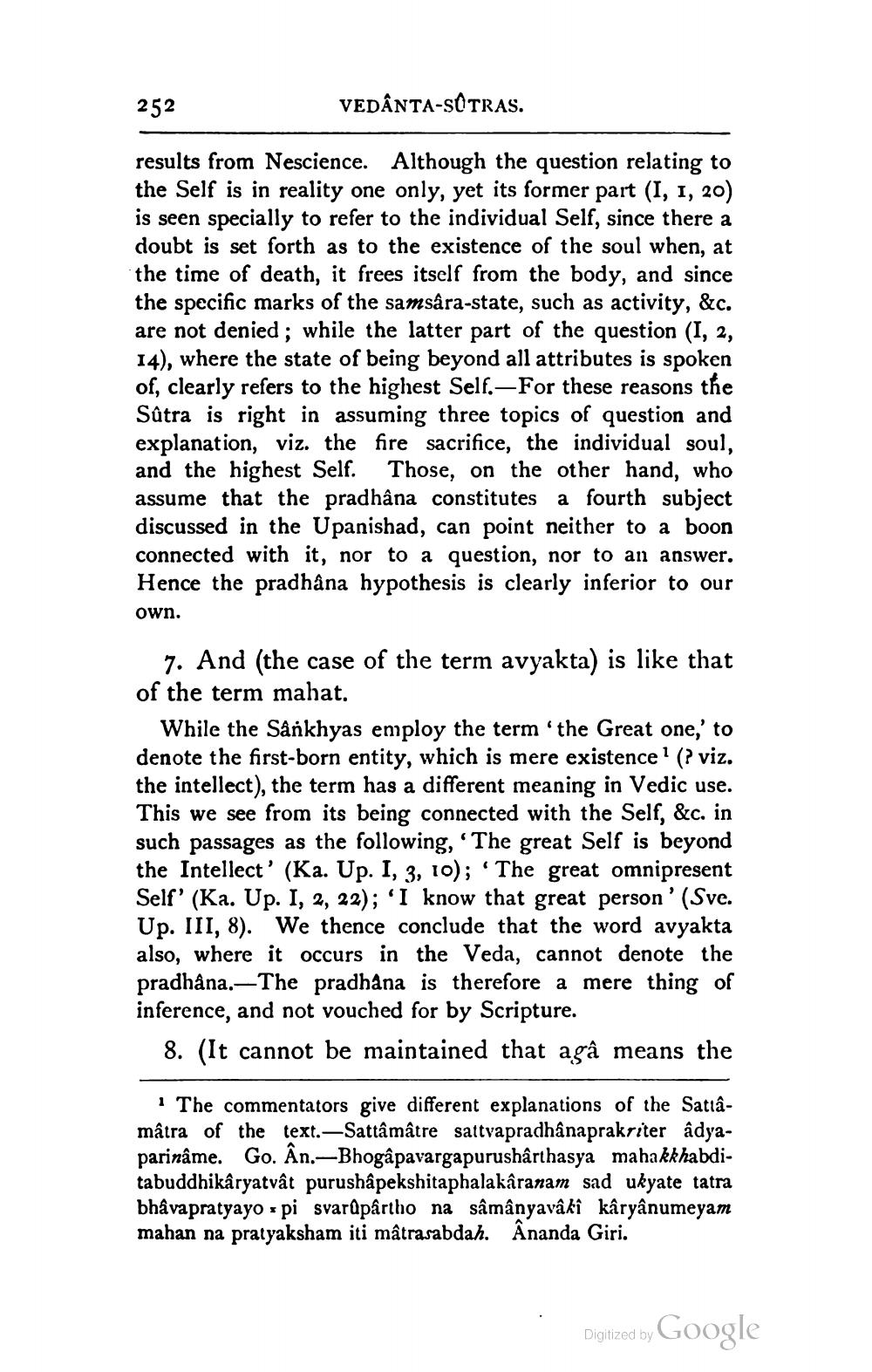________________
252
VEDÂNTA-SOTRAS.
results from Nescience. Although the question relating to the Self is in reality one only, yet its former part (I, I, 20) is seen specially to refer to the individual Self, since there a doubt is set forth as to the existence of the soul when, at the time of death, it frees itself from the body, and since the specific marks of the samsâra-state, such as activity, &c. are not denied; while the latter part of the question (I, 2, 14), where the state of being beyond all attributes is spoken of, clearly refers to the highest Self.—For these reasons the Sûtra is right in assuming three topics of question and explanation, viz. the fire sacrifice, the individual soul, and the highest Self. Those, on the other hand, who assume that the pradhâna constitutes a fourth subject discussed in the Upanishad, can point neither to a boon connected with it, nor to a question, nor to an answer. Hence the pradhana hypothesis is clearly inferior to our own.
7. And (the case of the term avyakta) is like that of the term mahat.
While the Sankhyas employ the term 'the Great one,' to denote the first-born entity, which is mere existence ? (? viz. the intellect), the term has a different meaning in Vedic use. This we see from its being connected with the Self, &c. in such passages as the following, ‘The great Self is beyond the Intellect' (Ka. Up. I, 3, 10); 'The great omnipresent Self' (Ka. Up. I, 2, 22); 'I know that great person' (Sve. Up. III, 8). We thence conclude that the word avyakta also, where it occurs in the Veda, cannot denote the pradhana.—The pradhana is therefore a mere thing of inference, and not vouched for by Scripture.
8. (It cannot be maintained that agâ means the
1 The commentators give different explanations of the Satiâmâtra of the text.—Sattâmâtre sattvapradhânaprakriter âdyaparinâme. Go. Ân.-Bhogậpavargapurushârthasya mahakkhabditabuddhikaryatvat purushâpekshitaphalakaranam sad ukyate tatra bhavapratyayo pi svarūpârtho na sâmânyavâkî kâryânumeyam mahan na pratyaksham iti mâtrasabdah. Ananda Giri.
Digitized by Google




